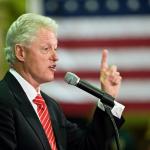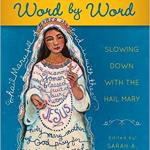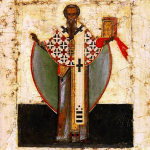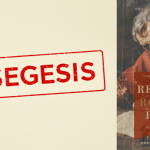Democratic candidate Bernie Sanders made a highly-publicized trip to the Vatican Friday to speak to a conference on Catholic social teaching. I’d be hard-pressed to remember the last time a presidential candidate from any party (let alone, a Jewish one) quoted extensively from a papal encyclical during his campaign.
From his prepared text:
I am honored to be with you today and was pleased to receive your invitation to speak to this conference of The Pontifical Academy of Social Sciences. Today we celebrate the encyclical Centesimus Annus and reflect on its meaning for our world a quarter-century after it was presented by Pope John Paul II. With the fall of Communism, Pope John Paul II gave a clarion call for human freedom in its truest sense: freedom that defends the dignity of every person and that is always oriented towards the common good.
The Church’s social teachings, stretching back to the first modern encyclical about the industrial economy, Rerum Novarum in 1891, to Centesimus Annus, to Pope Francis’s inspiring encyclical Laudato Si’ this past year, have grappled with the challenges of the market economy. There are few places in modern thought that rival the depth and insight of the Church’s moral teachings on the market economy.
Over a century ago, Pope Leo XIII highlighted economic issues and challenges in Rerum Novarum that continue to haunt us today, such as what he called “the enormous wealth of a few as opposed to the poverty of the many.”
And let us be clear. That situation is worse today. In the year 2016, the top one percent of the people on this planet own more wealth than the bottom 99 percent, while the wealthiest 60 people – 60 people – own more than the bottom half – 3 1/2 billion people. At a time when so few have so much, and so many have so little, we must reject the foundations of this contemporary economy as immoral and unsustainable.
The words of Centesimus Annus likewise resonate with us today.
Read the full text.
















